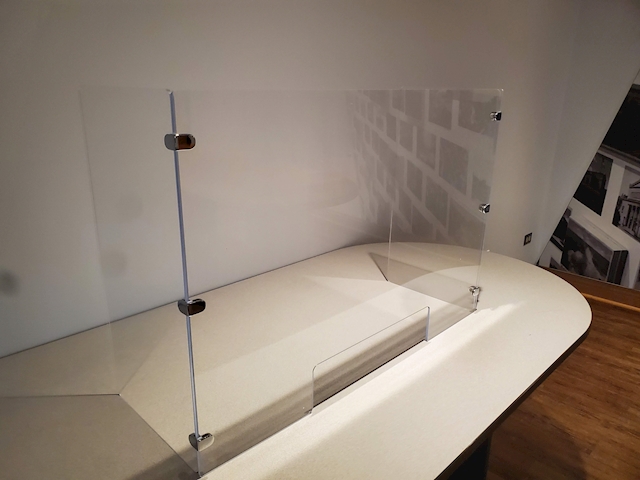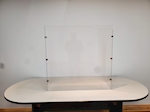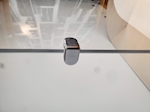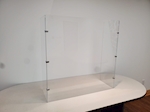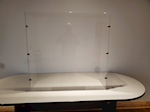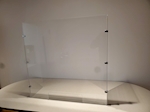Back to Work 3' Hygiene Barriers
Care Instructions:
1. Use the right tools
Look for a cleaning solution made especially for plastic, such as Brillianize, and soft cotton microfiber cloths. It's important to use a product made for acrylic, because many household cleaners, such as Windex, 409, or Fantastik, will break down the material and make it look cloudy. You'll also want to make sure your microfiber cloth is clean—small particles trapped in a used cloth can scratch the surface.
1. Apply cleaner
Go ahead and apply the plastic cleaner to a small section of your acrylic surface. Use your microfiber cloth to gently polish the acrylic. Once the area has been buffed completely, move on to the next section and continue until the entire piece has been cleaned and polished.
2. Beware of ammonia
Acrylic's number one enemy is ammonia. So when it comes to cleaning Lucite and acrylic pieces, "don't use any cleaner that has ammonia.This ingredient causes acrylic and Lucite to become cloudy, something you won't be able to reverse.
2. Be gentle
Acrylic can scratch easily, so avoid contact with sharp or abrasive items.
- Available in custom sizes.
- 2', 3', 4' and 5' wide.
- Can be cut with or without a "paper pass through" on the front panel
Care Instructions:
1. Use the right tools
Look for a cleaning solution made especially for plastic, such as Brillianize, and soft cotton microfiber cloths. It's important to use a product made for acrylic, because many household cleaners, such as Windex, 409, or Fantastik, will break down the material and make it look cloudy. You'll also want to make sure your microfiber cloth is clean—small particles trapped in a used cloth can scratch the surface.
1. Apply cleaner
Go ahead and apply the plastic cleaner to a small section of your acrylic surface. Use your microfiber cloth to gently polish the acrylic. Once the area has been buffed completely, move on to the next section and continue until the entire piece has been cleaned and polished.
2. Beware of ammonia
Acrylic's number one enemy is ammonia. So when it comes to cleaning Lucite and acrylic pieces, "don't use any cleaner that has ammonia.This ingredient causes acrylic and Lucite to become cloudy, something you won't be able to reverse.
2. Be gentle
Acrylic can scratch easily, so avoid contact with sharp or abrasive items.

